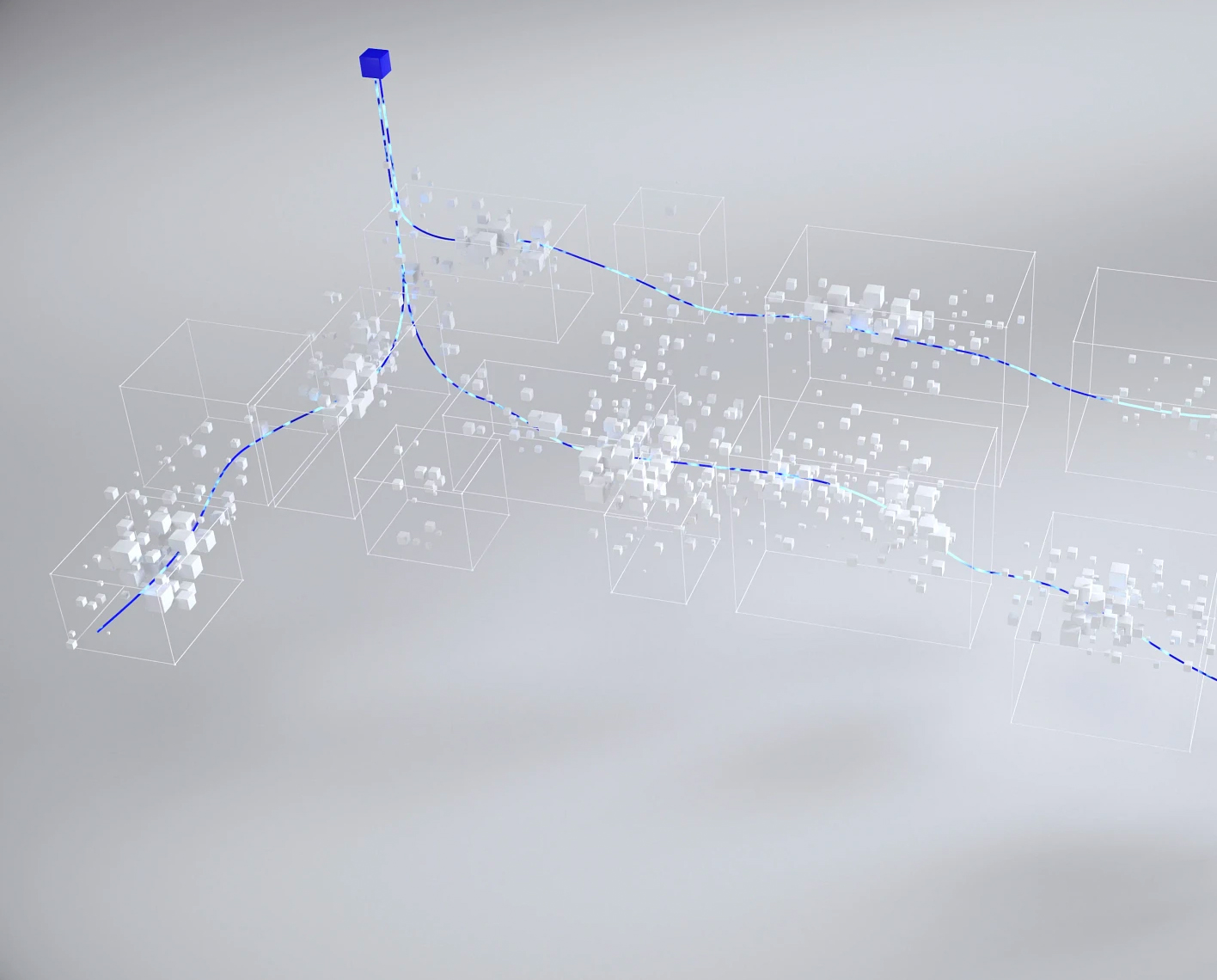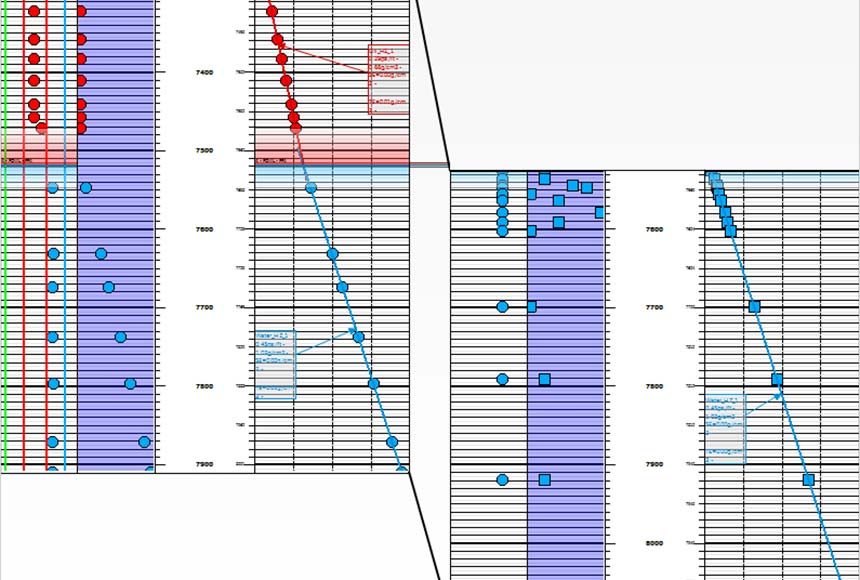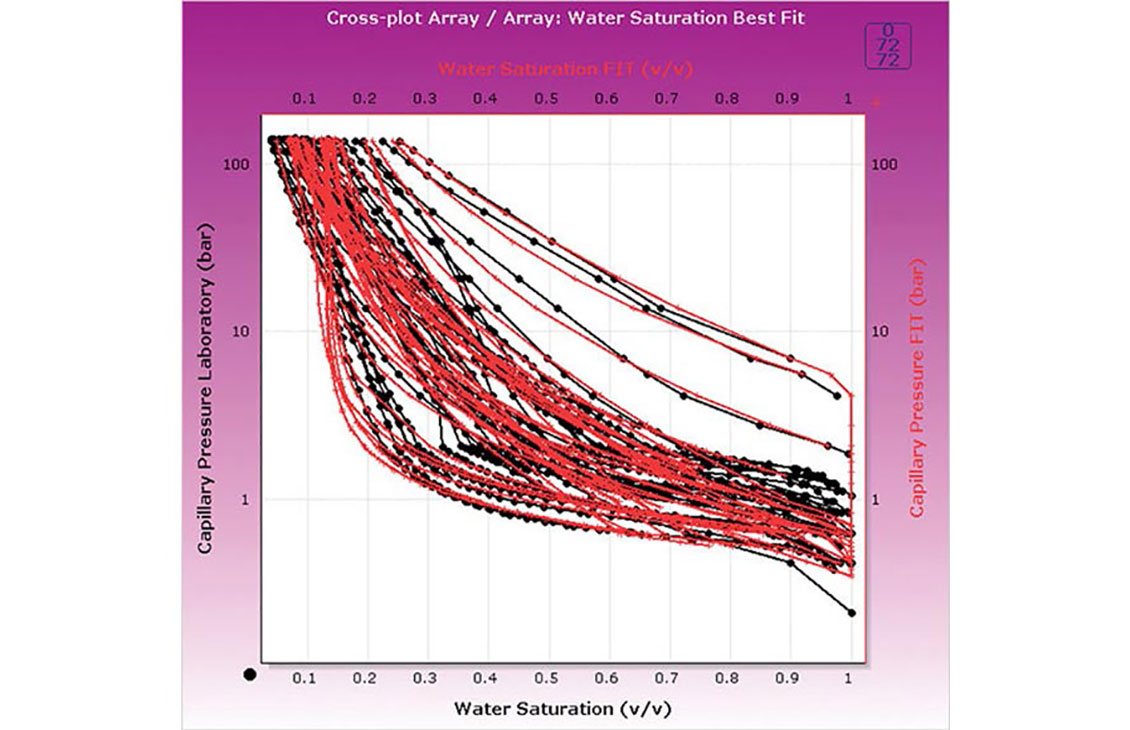Techlog Formation Pressure
Analyze your formation pressure data. The graphical tools in the pretest interpretation phase enable easy quality control of the raw pressure versus time data to generate a single dataset. You can use the dataset generated from pretest interpretation phase in the gradient analysis phase (in single- and multiwell environments) to get fluid typing from determination of densities, hydraulic zones, and contacts.

Multiwell environments
The FP° module can be used in single- or multiwell mode. It is possible to work by group (for example using hydraulically connected units) or use multi-well data to define common fluid gradients and free fluid levels between the wells.
Module connections
FP° results can be combined with other Techlog modules, such as the Saturation-Height Modeling and Fluid Contact modules. This allows the user to display, cross-check, and validate contacts derived from other physical measurements. It is also possible to create and use temporary fluid contacts.
Pretest interpretation
Within an interactive environment and with graphical tools, the Formation Pressure (FP°) module enables analysts to:
- Start analysis using raw data.
- Display and review the quality of the pressure picks, adjusting final build up pressure, pressure drawdown, and before-and-after pressure.
- Use QC formula to help pick automatically the best pressure from the multiple pretests for each station.
Gradient analysis
Benefits of the Techlog FP° module include:
- The ability to perform multi-well and pressure data analysis to get fluid typing from determination of densities, hydraulic zones, and free fluid levels.
- A graphical interface for faster and intuitive analysis.
- Integration of the fluid connectivity concept: hydraulic zones defining potential reservoir regions.
- A quality control input, which can be used as a weighting factor for gradient and density calculation.
- Defining of free fluid levels and hydraulic barriers.

Investigating uncertainties
The FP° module also allows analysts to investigate the uncertainties. This includes the ability to:
- Input uncertainty ranges for depth and pressure measurements.
- Estimate ranges of gradients consistent with the uncertainty model.
- Quantify the impact on fluid levels or connectivity of data uncertainty.
- Perform known gradient comparison.
- Conduct excess pressure analysis.

NExT Techlog training courses
NExT offers a comprehensive training program to support users of the SLB software, plugins, and other software products.
In this section
-

Techlog Fluid Contact
Manage compartmentalization in complex reservoirs—incorporate geological, reservoir engineering, and petrophysics data into multiple zonation schemesManage compartmentalization in complex reservoirs—incorporate geological, reservoir engineering, and petrophysics data into multiple zonation schemes.
-

Techlog Formation Pressure
Analyze your formation pressure dataThe graphical tools in the pretest interpretation phase enable easy quality control of the raw pressure versus time data to generate a single dataset.
-

Techlog Saturation-Height Modeling (SHM)
Integrate core-to-log data in your saturation-height workflow using set of solutions for saturation-height modeling in both the log and core domainsIntegrate core-to-log data in your saturation-height workflow using set of solutions for saturation-height modeling in both the log and core domains.



